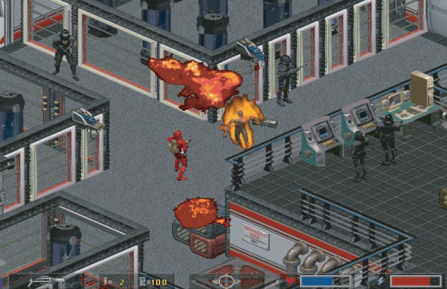- 签证留学 |
- 笔译 |
- 口译
- 求职 |
- 日/韩语 |
- 德语
In some cases, a game cannot be simply translated and released in the target culture, but must first be "culturalized," i.e., adapted to account for certain cultural conventions and preferences:
Games are created for entertainment value and therefore tend to be carefully crafted to suit a particular audience .…. Western game characters, for example, are usually more "adult-like" (think of He-Man or Lara Croft), while Asian characters typically emphasize more child-like characteristics (think of Japanese anime or manga) and have more of a fantasy look and feel. For certain titles, localizers may find they need to recreate characters for the target market (Trainor 2003: 18).
A related issue is the depiction of violence and/or sexuality in games. While violence is of particular concern on the European market, nudity is much less so. Indeed, Pham and Sandell quote a spokeswoman for the German agency Bundesprüfstelle für jugendgefährdende Medien as stating that “the representation of unclothed people is not relevant in the sense of the protection of children and young people." Computer and video games have come under intense public scrutiny in several European countries. In Germany, for instance, the press linked a teenager's 2002 shooting spree at an Erfurt school (which left more than a dozen people dead) with his frequent playing of the first-person shooter game Counter-Strike, and several politicians called for a general ban of "killer games." Germany has tightened existing laws concerning the depiction of violence in computer and video games, and there is a movement towards a European legislation in this area.

Figure 1. Violence in the US version of Crusader: No Remorse.
© Origin Systems.
The effect of these laws is that games developed in the US often receive higher age ratings (a game that is labeled "Teen" in the US might be rated 18+ in a European country), and that marketing activities for extremely violent games may be severely restricted or even banned outright (see Kreimeier). Such restrictions, of course, can clearly limit the sales of a game in an important market, so game companies often adapt localized versions to adhere to national rating systems. Figure 1, for instance, shows a scene from the game Crusader: No Remorse in which the character controlled by the player (in the center) incinerates an enemy who screams while he is dying. Throughout the entire German version, this scene (and similar ones) was replaced with the victim just falling down, without bursting into flames or screaming.
